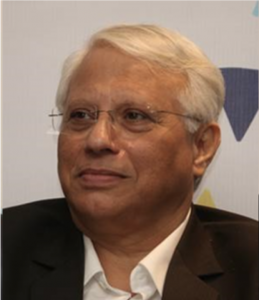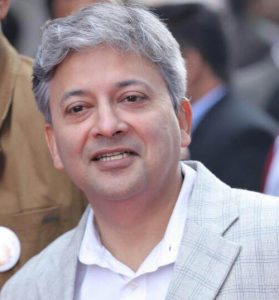The dynamics of business is changing rapidly, and so is HR. We need leaders with blended capabilities at the top. A look at the industry reveals that all the senior HR positions are occupied by people from a pure HR background and have served in HR throughout their careers. But then, there are also some very successful leaders who have worked in other functional roles before coming into HR.
So, who makes for a better CHRO? Someone who has always been in the HR function or someone who has cross-functional experience as well? Does working in different functions really offer an added advantage?
We posed this question to some of the renowned names in the HR industry, and here is what they had to say:

Adil Malia, CEO, The Firm
Deep functional knowledge of HR can never be a setback. It can only be an advantage. However, if this functional knowledge is limited and not further augmented by suitable business and financial acumen, market knowledge or maturity of attitude, then the person cannot succeed.
On the other hand, however functionally competent a person may be, if she/he does not understand people behaviours, human motivations, subliminal insights and EVPs, and has no clue of functional people management / life-cycle processes, then she/he cannot thrive and succeed in a top-level HR role.
What is required at the top of the corporate ladder is mature and blended leadership, with composite leadership competencies.
With the right open and learning mindset, leaders can be coached in the areas where they are inadequate. It is all about an individual’s eagerness to learn and learning quotient. If one is open to learning, all models work.
Personally, however, though functionally qualified, I worked in HR, and then moved into business roles for four years before re-routing my career back into HR. I think that helped me a lot in my development.

Abhijit Bhaduri, coach, columnist and innovator
When we get our credentials, it gives us a certain kind of perspective to get started in our career. However, there are many more nuances that we discover as we go deep. That can mean knowing more about other functions or gaining more in-depth knowledge of aspects of HR (for instance, how to do assessments or even theories of industrial psychology).
In the absence of in-depth knowledge, one may end up somewhat like a dispensing chemist at a super speciality hospital. Every one who uses the English language is not equally proficient in it.
Then, as the role evolves and things change, we may all need to learn about subjects we may never thought necessary to read about. Cybersecurity is a good example.
Regardless of where you start, it is important to stay current.

Biplob Banerjee, chief people officer, Allied Blenders and Distillers
Before getting into HR, I was into sales. The sales experience has helped me understand business and develop in my life. For me, the difference between an HR leader coming without cross-functional experience and an HR leader with functional experience is similar to the difference between raw food and processed food. Raw food is very much rich in nutrition, whereas processed food is more refined.
If you ask me, cross-functional experience is very highly advantageous. If you consider an organisation as a body, then knowledge of the business and HR expertise are like the two hands which complement each other.
There have been some great HR leaders who did not have any cross-functional experience but were highly intelligent and possessed the capabilities to understand the nuances of the business.
I feel, if you want to excel in the HR field, it is better to gather other functional experiences early on in your life.

Ashish Chattoraj, CHRO, PayU
Personally, I feel that to be a successful HR professional one should understand and balance people and business priorities. HR leaders should understand business and build people capabilities accordingly, without letting the value and culture framework out of sight.
For me, HR professionals who understand business are best suited to lead HR.
Value our content... contribute towards our growth. Even a small contribution a month would be of great help for us.
Since eight years, we have been serving the industry through daily news and stories. Our content is free for all and we plan to keep it that way.
Support HRKatha. Pay Here (All it takes is a minute)





































Rightly said sir, but most of the HR feels their job can’t be handled by anyone else than an MBA HR degree holder.
Additional qualification is required to gain knowledge but I have offen seen that resume get rejected if we see a person who is having work history with lot of deparment.
He is considered less experienced and not suitable candidate.